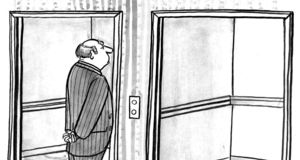Featured Article:Would You Cheat? Cheating Behavior, Human Nature, and Decision-Making
By
2014, Vol. 6 No. 03 | pg. 1/5 | »
IN THIS ARTICLE
KEYWORDS
Questions concerning human nature provoke controversy across disciplines, particularly when it comes to explaining evil or ‘immoral’ behaviors. Endeavors to explain actions that are considered immoral strike at a fundamental philosophical issue: whether people are innately good and it is the world that corrupts them; or whether people are innately evil and their tainted proclivities are more or less inevitable. While it is now apparent that the extreme version of the first claim – i.e. the ‘blank slate’ dogma combined with the noble savage myth – is difficult to validate (Pinker, 2003), the exact extent to which people might be considered depraved remains highly contentious as well. The view that we are innately evil and that there are no forces within us that would stop us from the worst atrocities also seems wrong. We are capable of choosing moral behavior even if the alternative brings us more immediate benefits. Still, it is not clear how certain behaviors should be interpreted. Specifically, how should we understand fairness? Is it the case that people are naturally fair? What forces drive so-called ‘moral’ behavior and its alternative? Moral reputation pays, and as such individuals make decisions to maximize their perceived moral reputation, both internally and externally.
This study explores research relating to a certain type of immoral behavior – cheating – and evaluates this work in light of evolutionary theory. This type of behavior is especially perplexing because in many cases where the opportunity to immorally gain is available, cheating is still not chosen or, more often, not maximized. While it seems the answer to the question “why do people cheat?” is obvious – if they can profit from it, monetarily or otherwise, they will cheat – the answer to the question “why do people refrain from cheating?” is far from obvious.
The most interesting issue in cheating behavior is its formation within an individual. Particularly, what is the default option when one encounters an opportunity to cheat? Is it the case that people have an automatic desire to serve their interests even if it involves cheating? Do they have to suppress their vicious inclinations in order to behave morally? Alternatively, it may be the case that moral (fair) behavior comes naturally and people will cheat only when they start to engage in cognitive reconstruction of a situation. 
To cheat or not to cheat? "Card-Sharpers," circa 1634 by Jacob van Oost. The other problem relevant to research on cheating is the interpretation of fair behavior. One common standpoint is that people refrain from cheating because they are moral people. Good people do not do bad things. This explanation, however, is questionable: it is not clear whether such good behavior may exist per se. Organisms, including humans, are motivated by self-interest and from the biological perspective there is no such thing as non-self-interested behavior (Alexander, 1987). How it is therefore possible to explain fair interactions between self-interested individuals?1 A Critical Factor in Moral Decision-Making: What has the Standard Economic Model Overlooked?Traditional economics has implicitly endorsed the corrupt view of human nature. Thaler and Sunstein (2008) describe this view by introducing the concept of Econs – mythical creatures that have been conceived by economists and that are also often assumed to be real by ordinary people. Among many characteristics that distinguish them from humans, the most salient one is that Econs are perfectly rational beings – they consider relevant issues and always act in their best interest. It means that they respond to external incentives and are not swayed by emotional biases. Moreover, in the social world they analyze their prospective gains and make decisions that are always thoughtful. When they are faced with an opportunity to dishonestly profit, they conduct cost-benefit analysis of the possible outcomes. Such view was most notably maintained by Becker (1968) in his rational model of crime. According to him, when people are able to commit unethical deeds, they consider the benefits it may bring, the possibility of being caught and the magnitude of possible punishment. Note that all of these are external factors. This model is intuitively valid and people seem to think that way. We are more likely to cheat when we can benefit more from it, we are more likely to cheat when no one watches us and mild punishments may tempt us to take a risk, as opposed to harsher ones. This is a powerful idea and people like to think that they always conduct sophisticated reasoning, reaching the most rational conclusion in the end. But why is this necessarily the corrupt view of human nature? In order to see it let us consider predictions that it makes. When people are aware that they cannot be caught or that no punishment will be enforced they will surely engage in unethical behavior. Indeed, this is the most rational thing to do. It assumes that there are no forces within an individual that would stop him or her from committing unethical behavior. In recent years, many experiments have been conducted aimed at showing effects that violate the rational economic model. One such experiment was conducted by Fischbacher and Föllmi-ÉHeusi (2013), who designed a clever paradigm for studying cheating. After completing some unrelated task, participants were informed that they would receive an additional payoff based on a random process. Specifically, participants were instructed to roll a die in order to determine how much they would receive (1 to 5 CHF for roll outcomes 1 to 5, respectively and 0 CHF for rolling 6) and then to report this number to the experimenter. Critically, they rolled a die privately and were instructed to roll it additional times, thus eliminating the possibility that someone could compare the actual outcome to the one reported. This design made it clear that they could cheat and there was absolutely no possibility of being caught. Figure 1. Frequency of numbers reported. Stars display the significance of two-sided binomial test that the observed percentage differs from 16.7%; *10% level, **5% level, ***1% level (Fischbacher & Föllmi-Heusi, 2013, p. 533).
If people were rational beings who maximize profit, everyone in this situation would report rolling a 5. Unfortunately for the rational model, results did not support this prediction. The fact that less than 100% of participants reported rolling a 5 suggests that people do not always make their decisions based on their interests. Considerable overreporting of 5, as compared to fair roll expected distribution, indicate that some people indeed lied in order to maximize their payoff. There were also a substantial number of people who were totally honest, as reporting even of a ‘losing’ 6 suggests; but the most interesting effect was the overreporting of 4. This is puzzling because some people lied, but did so without maximizing their payoffs. People are primarily susceptible to information concerning how their actions might be perceived in a social setting that they relate to; they react to perceptions of behavior in particular contexts, not to abstract concepts of morality or immorality.
This pattern of cheating reveals a very interesting mechanism – people are motivated to lie when it is in their interest, but they are also motivated to disguise their lies. Having rolled a low outcome (1, 2, 3, 6), some participants decided to cheat, but they also took into consideration how it would ‘look.’ Reporting a 5 might have been suspicious, so by reporting a 4 they made a moral compromise – gained financially, but also took care for how their behavior would be perceived. Such irrational patterns of cheating were also described by Mazar, Amir and Ariely (2008), who introduced a theory of self-concept maintenance in order to account for this phenomenon. According to them, people are motivated to hold a favorable self-concept – they believe in their own moral character and avoid situations that would contradict this belief. This leads to a situation where there are two opposing forces: motivation to gain and motivation to maintain positive self-image. As a result, people find some state of equilibrium – they engage in cheating, but only to the extent that it is harmless for their self-concept. They conducted a series of experiments in which they had participants solve mathematical problems and then report to the experimenter how much they managed to solve (with the payoff determined according to their success) having previously destroyed their worksheets. It turned out that people lied when they had the opportunity to do so, but they did not lie to the maximum extent possible. Very few participants claimed that they had solved all the problems, which would have been the most ‘rational’ thing to do, given the circumstances. Most people cheated, but they dishonestly increased their payoff only by a little. In addition, people were not responsive to monetary incentives – cheating remained at a similar level when the stakes were higher; instead, they were responsive to many irrelevant things, such as the presence of an honor code, ethical reminders, and the medium of exchange. It seems to be the case that when faced with an opportunity to cheat, people do not make rational choices, but employ internal mechanisms that assess contextual factors and determine how certain actions would influence one’s self-concept. Shalvi and his collaborators (Shalvi, Handgraaf, & De Dreu, 2011) call this process of making tradeoffs between material self-interest and self-concept maintenance ethical maneuvering. They point out that if it is true that people constantly seek compromises when making ethical decisions, it follows that they should avoid lies to a large extent (those which would not be compatible with an ‘honest person’ self-view) in addition to minor lies because profits from cheating must be sufficient enough to outweigh the psychological ‘cost’ of lying. Between these boundaries is a comfort zone where lying is most likely.Continued on Next Page » Suggested Reading from Inquiries Journal
Inquiries Journal provides undergraduate and graduate students around the world a platform for the wide dissemination of academic work over a range of core disciplines. Representing the work of students from hundreds of institutions around the globe, Inquiries Journal's large database of academic articles is completely free. Learn more | Blog | Submit Latest in Psychology |



















